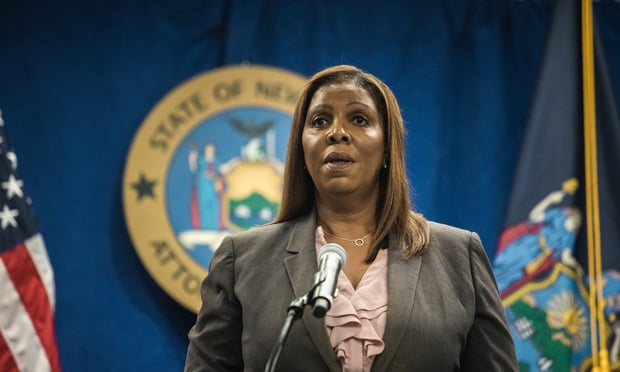COLUMBIA, S.C. (AP) — The South Carolina House on Wednesday approved a bill designed to shore up the state's retirement system, requiring all public employees to contribute more toward their retirement and new hires to work longer.
The House voted 86-27 on a bill legislators said is necessary to ensure workers get their benefit checks decades from now. It requires another perfunctory vote in the House before heading over to the Senate.
"If we do nothing, the biggest problem is the system won't be here," said Rep. Jim Merrill, R-Charleston, who led a bi-partisan panel that spent months crafting the bill.
Recommended For You
He noted the initial bill had far more drastic changes, which were scaled back as the panel worked with actuarial consultants on how various options would impact the system's solvency.
The approved bill would:
—Require workers hired after July 1 to work an additional two years to collect full retirement, while current employees could still retire after 28 years.
—Increase workers' contributions toward their retirement from 6.5 percent of their salary to 7.5 percent over two years.
—Change how benefits are calculated. Benefits would be based on employees' last five years of pay, rather than three. Money paid for overtime, unused vacation and sick days at careers' end could no longer be rolled into benefit calculations.
—Tie annual increases in retirees' checks to investment returns. A raise would kick in automatically only if the pension portfolio's rate of return averages more than 7.5 percent over five years.
—Lock in the 1-percentage-point increase in employers' contribution to their workers'pensions. The Budget and Control Board voted last November to increase that to 10.6 percent, as an emergency move to prevent a downgrade in the state's credit rating. The House's budget plan for 2012-13 covers that additional $31 million for state agencies and districts.
Rep. Gilda Cobb-Hunter noted that translates to taxpayers footing more of the bill.
The retirement system is funded through three things: employee contributions, taxpayer contributions, and the rate of return on the state's investments. The easy way out would be to keep adding more state money into the system, but that will skyrocket, largely because of previous bad decisions legislators made with good intentions, Merrill said. He added that any delay will only make the fix harder.
"We made a bunch of promises we couldn't keep. We're where we are because all of us like to make people feel good and promise them things like a 28-year retirement which sounded great at the time, but we didn't pay for it," said Cobb-Hunter, D-Orangeburg, who was on the study panel.
In an unusual move, she took the podium to convince her fellow Democrats to vote for the bill and against attempts by Minority Leader Harry Ott to grandfather workers within five years of retirement from the benefit calculation changes.
"Those nearing retirement deserve at least that much," said Rep. Joe Neal, D-Hopkins. "Consider employees who have worked in good faith, who had a contract with us."
Cobb-Hunter, a staunch advocate for state workers, assured her colleagues the panel considered that option and others, but the system would not support them.
"I think what we've done is the right thing," she said at the podium. "If you are afraid of making change because somebody may send you an email saying they won't vote for you again, then you're in the wrong line of work."
The system for public employees in state and local governments has a $13 billion unfunded, long-term liability, which represents the difference between current assets and what the state owes if every worker retired immediately.
To be considered sound, the system needs to be 80 percent funded within 30 years. Consultants say the bill meets that goal, projecting the system to be 85 percent funded in that time, said House Majority Leader Kenny Bingham, a panel member.
But he noted nothing is guaranteed, with the rate of return and how long people live being major factors, and it would be folly to make changes reducing that projected percentage.
Ott did get one change made. He argued legislators should be required to pony up more money too.
Legislators have a separate pension system, as do judges and solicitors. Workers in those systems already contribute 10 percent of their paycheck toward their retirement. Merrill noted they're already contributing more, and those systems are solvent, so there's no need to contribute more. Additional money put into those systems has no impact on the main system, he said.
However, Ott's amendment for the legislative system passed unanimously 115-0. The proposal to increase contributions for judges and solicitors failed 82-26.
"The reason has absolutely nothing to do with the debate we're having. The only issue is public perception," said Rep. Walt McLeod, D-Little Mountain, just before the vote. "Your supreme duty is to set an example. It's how people view us."
Most of the changes affect both the state's main retirement system for more than 190,000 employees of state agencies, school districts and local governments that want to participate, as well as the separate retirement system for about 27,000 law enforcement officers and firefighters around the state. Two changes, however, do not: The requirement to work 30 years and the overtime clause. Employees under the police system can still retire after 25 years.
© 2025 ALM Global, LLC, All Rights Reserved. Request academic re-use from www.copyright.com. All other uses, submit a request to [email protected]. For more information visit Asset & Logo Licensing.







